Our spring issue is out now! Our regular contributor and sustainability correspondent Davie Philip shares his insights on we can make more environmentally conscious decisions together – Dive on in!
Cultivate
In this sneak peek of a powerful article from our Spring 2019 issue, Davie Philip discusses how we can use new stories of hope and resilience to inspire ourselves to tackle the challenges facing our planet. To read the full article, pick up a copy of the magazine at your local stockist or subscribe here.
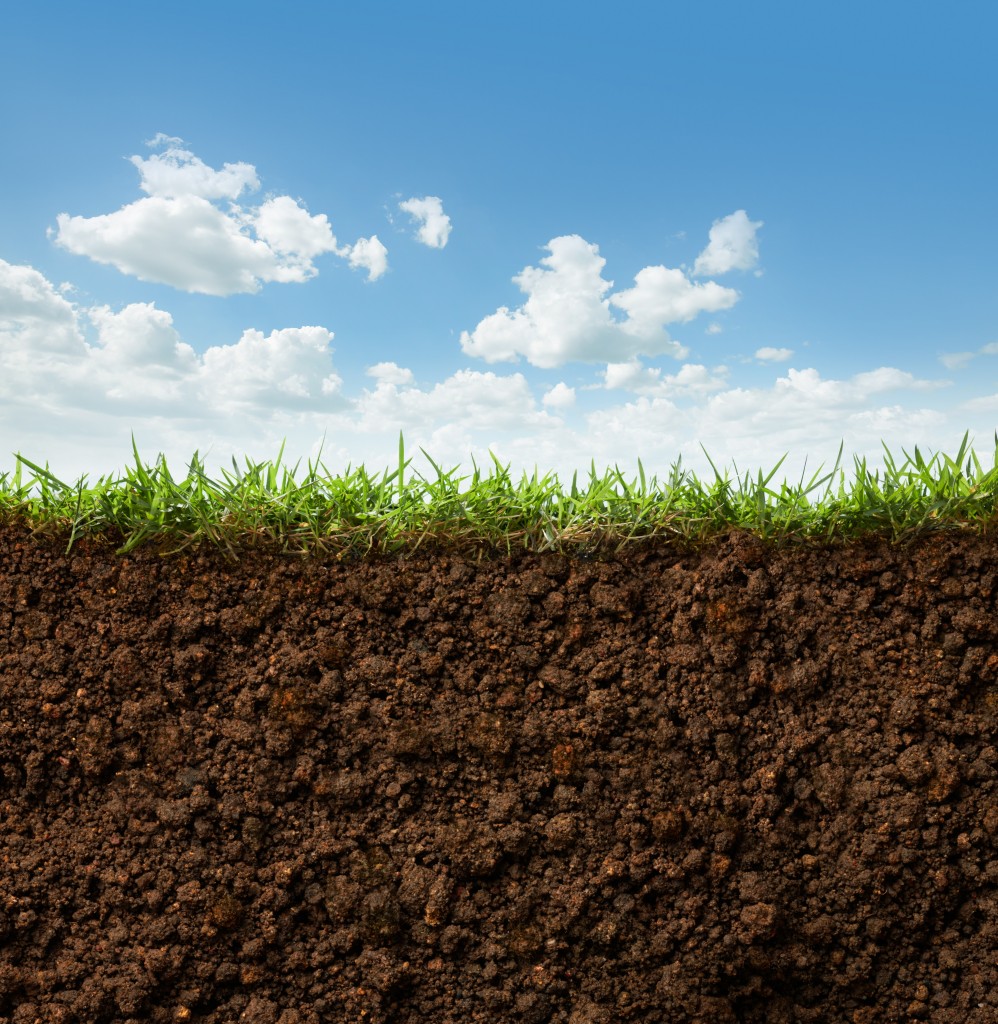
By Davie Philip
In the ground beneath our feet, out of sight and out of mind, microscopic communities of bacteria, fungi, protozoa and nematodes are working away providing vital functions upon which our very lives depend. The health of our soil, therefore, is key to the health of our plants, our food and, as we are now discovering, exposure to it has many other benefits for our wellbeing. It is likely that our disconnection from the living world is at the root of our present mental health crisis and many of the other challenges we face today. We all know that being in nature makes us feel good, and the health benefits of gardening, working or even just taking a walk on the land are becoming more apparent. Soil is alive; a teaspoon of it can contain billions of bacteria. There is increasing proof that contact with a specific strain of bacterium in the soil, Mycobacterium vaccae, makes us happier and smarter. This triggers the release of serotonin; reducing anxiety and making us feel more positive.
Some soil bacterium can also be helpful in preventing or treating diseases. Our future really does depend on healthy soil. With intensive agriculture and an increasing urban population, soil degradation is a serious problem. It takes approximately 500 years to replace an inch of topsoil lost to erosion. Half of the planet’s topsoil has disappeared in the last 150 years, and 10 million hectares of productive land is lost annually, the equivalent of 30 football pitches per minute.
If we want to counter the damage, we must begin by fostering awareness and nurturing a reconnection to our land. To reverse further degradation of soils we need to accelerate the shift towards more sustainable, regenerative agricultural models and increase participation in the stewardship of our land. Cultivate, the civil society organisation I work with, are the Irish partners in GROW, an EU-funded project setting out to empower citizens to become active guardians of our soil. Commercial organic growers, students, community gardeners and all sorts of growers will use sensors and other equipment to complete experiments and monitor and better understand their soil. They can then share their own data and learn from the results of the wider community. Increased availability of low-cost sensing technologies has opened up all sorts of new possibilities for collaborative data collection and sense making. GROW is a citizen observatory, where people of all ages and backgrounds can help with the monitoring of our soils at an EU-wide level, assisting organisations like the Met Office and policy makers in climate change adaptation and sustainable land use. As well as measuring soil quality, these engaged citizens will develop knowledge and practical skills to regenerate depleted soils. Do you have an allotment or own a small farm? Are you involved in a community or school garden? Do you want to develop your knowledge on soil and skills in growing food? Do you want to be part of a movement preserving soil for future generations? If the answer to any of these questions is yes then email grow@cultivate.ie to get involved.
davie Philip davie@cultivate.ie is a community catalyst at Cultivate cultivate.ie and is based in Cloughjordan ecovillage, thevillage.ie. He is curating the Convergence festival in September 2017 on the topic of Citizen engaged, Community Led Transitions. To join the conversation email convergence@cultivate.ie
Learning from Nature By Davie Philip
What do billions of years of resilience have to teach us?
“Those who are inspired by a model other than Nature, a mistress above all masters, are labouring in vain.” ~ Leonardo Da Vinci
What does it mean to live a good life, especially in a time when we face so many uncertainties? How do we maintain our health, happiness and collective well-being when the world seems to be unravelling? How do we make a living by collaborating and working together for the common good? These are some of the questions I have been exploring, and attempting to answer, in this column.
In my experience, being on a mission to “save the planet” is actually an unhelpful perspective to taking the action needed to reduce our environmental impact. It’s not the planet that needs saving. As nature is dynamic, always changing, turbulent and unforgiving, any “return to nature” thinking needs to be reframed to look at how we best cope with a rapidly changing world.
As natural systems are resilient, abundant and self-organising, I want to explore what we might learn by observing and emulating them. With nature as a teacher, we could make things in ways that don’t impact the environment anddo strengthen our resilience, and design systems that will allow our communities to flourish.
For three years, I have lived and worked in Cloughjordan, a small village in Tipperary and the 2012 winners of the national Green Community award. It is also the location of the Ecovillage, Ireland’s largest eco-neighbourhood, now home to over 50 families who have relocated in the hope of living a good life. The quality of life in Cloughjordan is indeed high. As a community, we have planted thousands of trees, have our own farm and live in efficient eco-houses that are bright and heated by renewable energy.
Although ecology is a focus of the community, it is definitely not our objective to get “back to nature”. We encourage the use of natural building materials, farm organically and aspire to reduce our environmental impact, but the Ecovillage project is more about community than saving the planet. The project’s original objective, building sustainable community, has been superseded by the idea of strengthening our community’s resilience.
In their book, Resilience: Why Things Bounce Back, Andrew Zolli and Ann Marie Healy point out that “a new dialogue is emerging around a new idea, resilience: how to help vulnerable people, organizations and systems persist, perhaps even thrive, amid unforeseeable disruptions. Where sustainability aims to put the world back into balance, resilience looks for ways to manage in an imbalanced world.”
We need to cultivate our resilience, and transforming linear, wasteful and polluting ways of using resources is an imperative. In the search for genuinely green solutions that take us beyond conventional sustainability, we will find that nature got there first. By observing the way nature does things, we can learn so much.
Janine Benyus, an American biologist, coined the term biomimicry for the science of examining the natural world and mimicking it to create more sustainable ways of making and doing things. She describes it as “the conscious emulation of nature’s genius”.
The word is derived from the Greek words bios, meaning life, and mimesis, meaning to imitate. Architects, engineers and social innovators who use this approach always start with the question: “What would nature do here?”Biomimicry has already helped us to conserve resources, gather water, harvest energy more efficiently, and offers all sorts of innovative responses to the challenges we face.
The approach makes it possible to manufacture materials with no pollution, build more efficient structures, create zero-waste systems, make our constructed world more resilient to change and help us make the transition away from a fossil fuel economy.
One example of biomimicry is the development of coatings for ship’s hulls based on the ability of a shark’s skin to reduce drag. The coating creates a more streamlined surface, which reduces friction and saves on fuel. Speedo even makes a swimsuit that uses this technology called Fastskin, which US swimmer Michael Phelps wore at the Bejing Olympics in 2008. These suits allow swimmers to move faster through the water and are so effective that they have now been banned in contests.
Biomimicry is well established in the fields of industrial design, engineering and manufacturing, but what I am interested in is how we can use nature as the inspiration for any of us to create solutions for our own and our community’s well-being. We can do this through Permaculture, an “it’s-all-connected” whole systems approach to the way we design our landscapes and human systems.
The essence of Permaculture is the design of an ecologically sound way of living. It is not another “back to nature” movement; it is a very practical and effective way to emulate natural patterns and principles to increase our resilience and quality of life. In the development of a permanent culture, learning by watching what is going on in the natural world is a very powerful tool.
Permaculture is an approach that takes us beyond sustainability to a truly restorative design for creating human habitats and healthy ecosystems. It helps us to protect and enrich soil, boost biodiversity and use natural resources in a healthy way. Underpinning this is the simple idea of working with, rather than against nature.
Permaculture principles can even help us to design viable social systems. The quality of every living system, and its ability to endure, is determined by the quality of its relationships, both internally between its elements and with its environment. This profound lesson from nature can be applied not only to the way we design our gardens and farms but how we structure our organisations and society. Permaculture could be defined as the science of maximising beneficial relationships.
Diversification reduces risk and builds resilience and is essential to a Permaculture approach. Nature relies on a large variety of species, systems and organisms that allow it to withstand external shocks because diversity gives strength. Everyone can study and apply Permaculture design; it really is an application of common sense.
If resilience is about cultivating the ability to cope with shocks and to self-organise, to change and to adapt, then there is no better teacher than nature. As Janine Benyus says: “After 3.8 billion years of research and development, failures are fossils, and what surrounds us is the secret to survival.”
Cultivate are offering a number of Permaculture courses over 2013. FEATAC accredited courses held over three weekends are being hosted in the spring and autumn, and a 9-day, full Permaculture Design Course is held in August with renowned US teacher Albert Bates. The courses will be held in the brand new WeCreate Centre in CloughjordanEcovillage. This setting provides participants with a unique opportunity to see many key sustainable systems in practice.
For full details, see www.cultivate.ie or call 0505 56063
Davie Philip runs the Community Resilience programme at Cultivate. He is based at the CloughjordanEcovillage and is a board member of GIY Ireland.
davie@cultivate.ie
Made with Love, Artisan Food Producers – Kilbeg Dairies, Meath, Ireland
One family’s labour of love
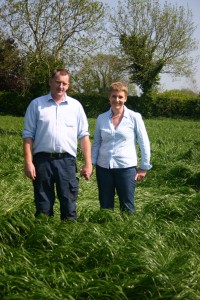
Quietly located in some of the most lush and fresh pasture in Co. Meath, you will find one of Ireland’s most successful artisan food producers, Kilbeg Dairies. Here, in an idyllic countryside setting, owners Kieran and Jane Cassidy have developed, with a true passion, award-winning dairy products, from fat free Quark Cheese to creamy, rich Mascarpone.
“The range is very much part of our family,” says Jane. “There are constant tastings at home. My mother laughs when she sees how seriously our children approach each new flavour or product.”
Jane had always been passionate about healthy, natural food, and returned from a Teagasc course knowing what she was destined to do. “The first time I made Quark, I fell in love with the process (smells, flavours, textures, time) and the concept of turning a natural ingredient into delicious dairy products.”
Beginning in the kitchen and selling at local markets, Kilbeg Dairies now produce an award-winning range which is naturally delicious and healthy, with an authentic flavour and texture. “It gladdens my heart, watching Ireland’s finest chefs open our products; first the smile from the aroma, then the absolute pleasure when they taste it. That alone makes it all worthwhile.”
Having received accolades from customers, the Great Taste Awards, Bridgestone Good Food Producers Guide, and Food and Wine Artisan Awards, Kilbeg Dairy products are now available in all major stores nationwide.
Green Christmas – Celebrate the Holidays Eco-Friendly Style – Davie Philip
Celebrate Christmas while helping the planet and your finances!
by Davie Philip
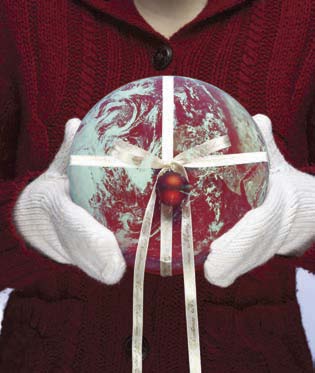 Christmas is a time for celebration, giving and spending time with family and friends. For most it is a positive time, but it can also be a time of stress and overspending in the lead up to the big day, searching for appropriate gifts for our loved ones. Persuaded by the thousands of TV ads each year we buy more and more things to throw away and gobble up energy.
Christmas is a time for celebration, giving and spending time with family and friends. For most it is a positive time, but it can also be a time of stress and overspending in the lead up to the big day, searching for appropriate gifts for our loved ones. Persuaded by the thousands of TV ads each year we buy more and more things to throw away and gobble up energy.
Christmas has become vital to the economy. Shop sales increase dramatically during the season as we purchase gifts, decorations, and supplies for the annual binge. The commercialisation of the festive season fuels consumerism and has become a time of recklessly high fossil fuel consumption.
Decorating homes with thousands of lights and plastic Santas to celebrate Christmas has become a high energy Christmas activity. Yet, any reminders of the festive season’s contribution to climate change and its impact on the planet are quite likely to be dismissed as the musings of the Christmas-hating Ebenezer Scrooge. ‘Bah humbug!’
However, scientists are now warning that we could soon be having a ‘green Christmas’ because of the dramatic effects of climate change. Trees that used to shed their leaves in autumn are now often still in leaf in mid-December. Experts say it is only a matter of time before foliage remains until the end of the month. Of course that is not the green Christmas we need.
Your Christmas gift to the planet could be cutting energy use and reducing consumption. But how do we keep our Christmas carbon footprints small? Here are a few tips to have a greener Christmas:
- Part of the joy of Christmas is the light’s which brighten our homes. The good news is there are plenty of way to reduce the amount of energy you use and carbon dioxide generated while still decorating your home with Christmas lights.
- Switching from conventional Christmas lights to LED lights will reduce your energy consumption by 90%, and because they don’t generate as much heat you could also be safer. A fibre optic decoration can light a whole tree from a single bulb, and is just as effective as a whole string of Christmas tree lights
- Turning one or more room lights off when you switch on your Christmas lights will make them look more attractive – and save energy. Try to only use your Christmas lights at night and when you are at home
- There are plenty of alternatives to plastic decorations and tinsel. Instead of using artificial Christmas decorations and lights, hang greenery from the garden or organic seasonal fruit that can be composted when the decorations come down.
- We dump millions of dead Christmas trees each year. Trees pump out oxygen and soak up CO2 so this isn’t such a good idea. As an alternative you could decorate houseplants or look around outdoors for fallen cones and branches to transform your home into a festive wonderland. If you can’t do without a tree consider a living one and plant it after the festive season.
- Christmas is an ideal opportunity to catch up with friends and people we haven’t had a chance to see for ages. If you know someone who may be on their own at Christmas, invite them along to enjoy your celebrations.
- Billions of Christmas presents are exchanged every year. Consider the impact on the environment the gifts you give. Think about what you are buying, where and how was it made, and is it really wanted? Gifts that help someone else live more sustainably, such as books or seedlings for a veggie patch are always a good idea.
- Keep the emphasis on presence not presents. The gift of time is always a great alternative; consider gifting tickets to a concert or a conference or vouchers for a massage.
- Many charities and environmental organisations offer gift services which not only solve the problem of the gift for the person who has everything, but also help others or the environment for years to come. You can buy a goat for a family in Bangladesh or organise for trees to be planted to offset the emissions from someone’s car for a year.
- To cut down on waste, you could wrap your presents in recycled paper, children’s drawings and paintings, or even glossy magazine paper. You could also save and reuse wrapping paper from gifts you receive. Using ribbon or string to wrap presents makes it easier for the wrapping paper to be reused.
- When planning your Christmas dinner think food miles and buy locally-grown, seasonal and organic produce. Buying local produce helps the local economy and is better for the environment because the produce hasn’t needed to be transported long distances in planes, ships or trucks to get to you. Also look for a ‘Fair Trade’ label on the produce you can’t source locally.
For more info www.cultivate.ie
“One kind word can warm three winter months.”
Japanese Proverb
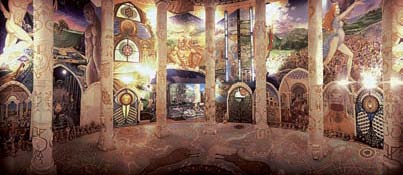 HAPPY HOLIDAYS
HAPPY HOLIDAYS
Guided Tours of the Temples of Humankind
The Federation of Damanhur, Italy, opens the door on its most precious realization, the Temples dedicated to Humanity: an extraordinary, underground construction, begun in 1978 and created entirely by hand. It has been declared a work of art by the Soprintendenza alle Belle Arti. There are 3 and 7-day programmes available, offering a full immersion in Damanhur including many hours in the spiritual energies of the Temples of Humankind.
Tao Garden Health Resort
The Tao Garden Health Resort, about thirty minutes outside of Chiang Mai, Thailand, is an internationally renowned Healing Resort where an individual or groups can go and experience a wide variety of holistic healing methodologies. Tao Garden Training Centre is more than a relaxing health resort for the individual, more than a place to train rigorous Taoist practices, and more than a spa for the whole family, it is a place where the very fabric of what one thinks is lifted to reveal what one knows.
Sacred Scotland
Guided tours around ancient sacred sites in Highland Perthshire, Scotland with historical researcher, Barry Dunford, author of The Holy Land of Scotland: Jesus in Scotland and the Gospel of the Grail. Based in the central Highlands of Scotland, which are steeped in ancient history and folklore, Barry integrates into his personalised tours, twelve years of research into this unique area. Sites include: megalithic stone circles, pictish symbol stones, hermitages, sanctuary stone crosses, ancient Celtic church sites and the famous Fortingall Yew believed to be the oldest tree in Europe.
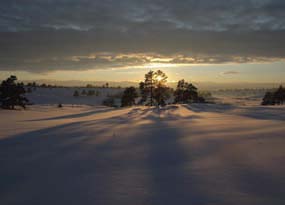 FESTIVE DAYS AND NIGHTS
FESTIVE DAYS AND NIGHTS
The Funky Seomra
At Last! A Saturday night out with a difference.
Imagine yourself on a night out in an exciting club atmosphere where you’re free to dance anyway you like without limitations, to the lush beats of funky world music accompanied by live African drummers. All this in a vibrant ecstatic atmosphere without alcohol or drugs. Here it is….The Funky Seomra! is an Embodiment event held monthly in association with Temple Bar’s Cultivate Centre. Everyone welcome.
When: Saturday October 18th
What time: 7.30pm – 12pm
Where: Cultivate Centre, Essex Street West, Temple Bar
Entry: €15 / €10 for members & unemployed
www.dublin.ie/websites/movement
Heaven and Earth Day Spa
The sanctuary on George’s Street Lower in Dun Laoghaire, is designed in every way to restore you and reconnect you to your inner self, with holistic design, professional beauty, body and soul care and advice on living food nutrition. It is a place to relax, rest and unwind, enjoy the delicious organic living foods in the Living Food café that will help to revitalise your body. and take time to browse through the selection of handpicked ethical, fair-trade products on offer.
For further information please contact:
Fiona Cunningham, Fleishman Hillard on 01-6188412 / 0872311653
Sinead Ni Chonaill, Fleishman Hillard on 01-6188408 / 0863316461
www.heavenandearth.ie
The Apple Farm
The Apple Farm in Tipperary has something for every health conscious person this season. Cider vinegar, recommended by Hippocrates himself, and used for thousands of years is a traditional favourite. Juices freshly pressed on the farm, from fruits grown right there on the spot make a great Christmas gift, and hampers are also available. Home-grown apples, of which there are a selection, are always popular too. You can call to the farm shop, which is open 7 days a week, or order the cider vinegar and juices online from www.theapplefarm.com
The Apple Farm, is located on the N24 between Cahir and Clonmel.
Clifden Holistic Health Day
14 February 2009
PHYSICAL, MENTAL, SPIRITUAL AND ENVIRONMENTAL HEALTH
Local practitioners of Systematic Kinesiology, Acupuncture, Reiki, Reflexology, Bowen Therapy and Massage, Chakra Balancing, Pranic Healing and Herbalism will be on hand to dispense advice and to offer sessions or tasters. Speakers from Cultivate Ireland, Sustainability Institute, Forum, GM FREE Ireland and Atlantic Aromatics, as well as Ronnie Plant and Audrey Keane will inspire us with talks. There will also be Drama, Yoga and 5 Rhythm Dance workshops. There will also be stands where you can try organic food, and products and also enjoy cookery demonstrations .
The Green Energy Awards
Green Awards winners will be unveiled at a glittering gala dinner in the Burlington Hotel, Dublin, on Thursday, December 4. Healthbuild Ltd., committed since 1989 to ecological buildings, is proud to be shortlisted for this years “The Green Energy Award”; category “Green Organisation.” The main focus of our work has always been low energy design in manufacturing, distribution and supply of a broad range of high quality and innovative ecological and healthy products as well as being actively involved in campaigning for sustainable and forward thinking transport and urban planning solutions for the city of Sligo.
This recognition is a wonderful encouragement to people everywhere who are involved in creating a positive and sustainable future.
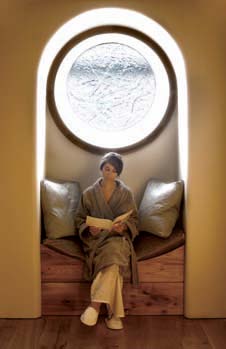 PAMPERING YOURSELF
PAMPERING YOURSELF
Samadhi Yoga Studios
Stretch into winter by taking an extra healthy lunch break. With daily morning classes (complete with porridge) and lunchtime classes three times a week, this Temple Bar Studio (with sister studios in Drogheda) offers a wide range of yoga classes, massage and meditation for all levels. With the friendliest teachers in town.
Frequency Specific Microcurrent
Frequency Specific Microcurrent is an exciting new way of treating nerve and muscle pain and many other conditions using specific frequencies and micro amperage current.
We have not found anyone it does not work on or any other condition for which it is useful.
The frequency specific effect is remarkable and reproducible.
For more info, contact David on 0862463797
SteamyWonder Spa System
Natures natural way of healing the body with steam.
Transform your massage table into a complete spa. Benefits Of Steam Include – Detoxification, Increased metabolism, Weight loss, Youthful hydrated skin, Relaxed muscles, Improved circulation, Relief from muscle/joint pain
Beautiful Bamboo Bed Linen
The ultimate sleep experience…a real treat for yourself or an original present gift wrapped for someone special.
Visit www.luxurybamboolinen.com for further information.
 GIVEAWAYS
GIVEAWAYS
Planet Beach
To celebrate the launch of our new website, Planet Beach have given us 10 sets of 3 Free Spa Treatments. The first 10 people to subscribe to our magazine online at www.positivelife.ie will receive 1 of these sets of free treatments each.
For more info on Planet Beach, tel: (01) 4629999
Or go online at www.planetbeach.com
The Organic Guide
This All-Ireland directory will tell you where to find certified local organic producers from free range poultry to organic wines and from cotton nappies to organic cosmetics. This highly practical, concise guide is organised by province and alphabetically providing not only full contact details but also a brief description of the products and services offered.
It is a book to use at home or take with you on your travels throughout the North and South of Ireland.
The Organic Centre, Rossinver, Co. Leitrim, 0719854338
All good bookshops and health food stores nationwide.
www.theorganiccentre.ie
For a chance to receive 1 of 5 copies of The Organic Guide, or 1 of 5 bottles of the new Winter Magic essential oil blend from Atlantic Aromatics, simply log on to www.positivelife.ie and sign up for our FREE e-newsletter.

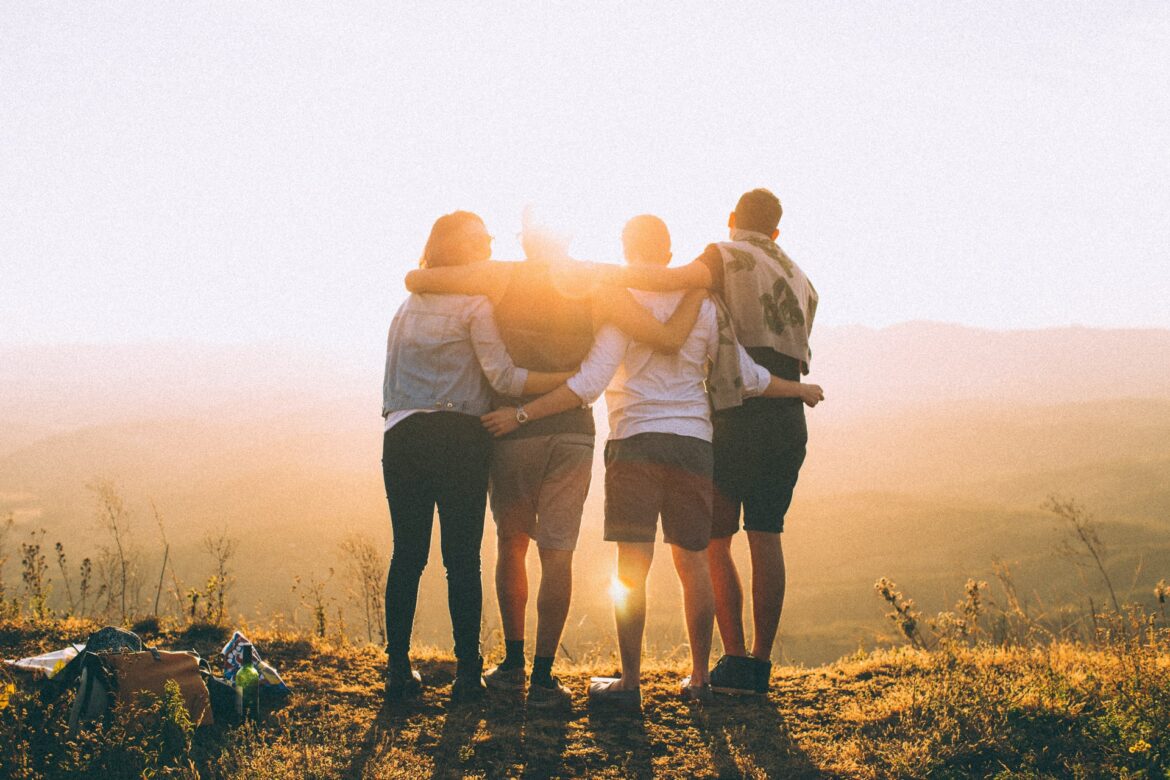


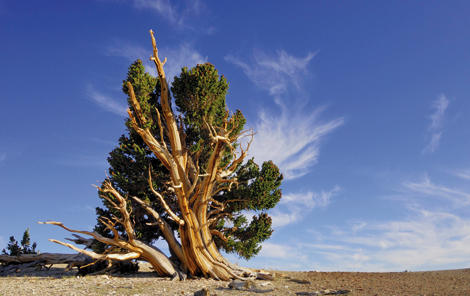

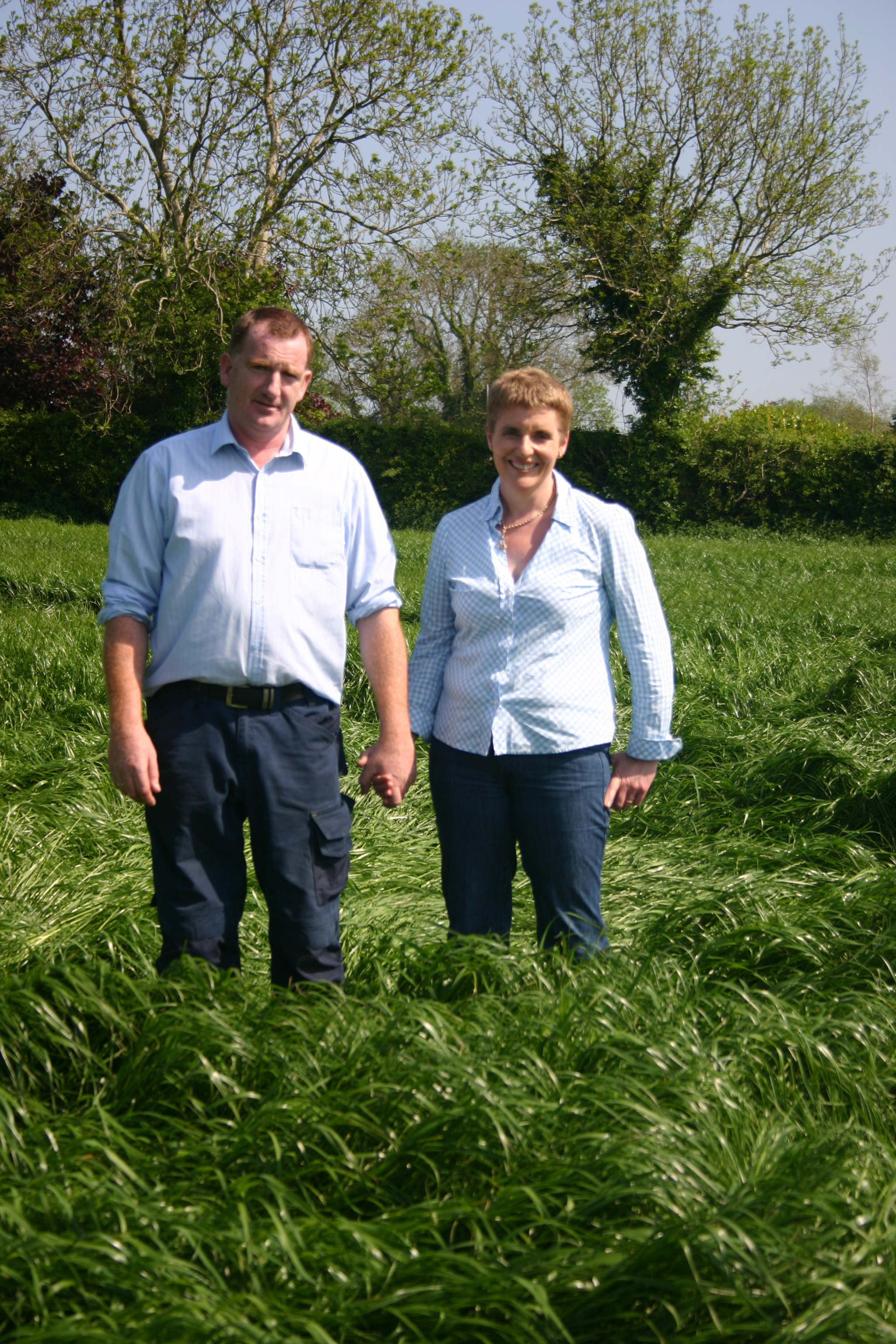
![pl_full_web_page_28_image_0001[1]](https://www.positivelife.ie/dev/wp-content/uploads/2009/03/pl_full_web_page_28_image_00011.jpg)
![pl_full_web_page_05_image_0001[1]](https://www.positivelife.ie/dev/wp-content/uploads/2009/03/pl_full_web_page_05_image_00011.jpg)